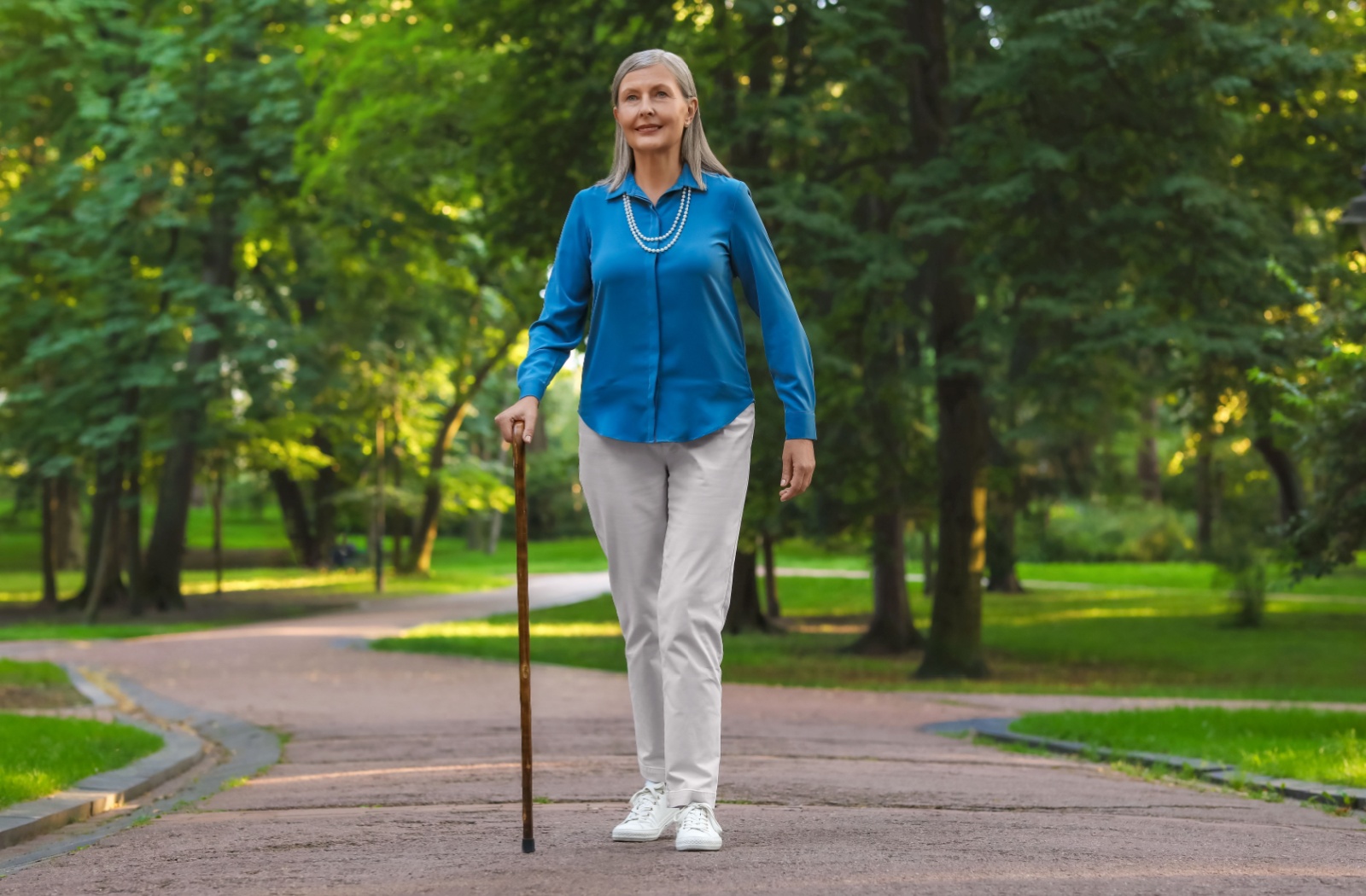No one can deny sleep’s critical role in our good health. Sleep affects physical wellness, cognitive performance, and emotional wellness. So, the importance of sleep for seniors cannot be overstated. A few tips for a better rest include:
- Develop a regular sleep schedule
- Create the right atmosphere
- Get enough physical activity
- Time your meals and beverages
- Use stress-reducing techniques
- Minimize daytime naps
None of these things themselves guarantees you’ll get a restful sleep. But developing these good habits can certainly help. It’s also essential to be aware that sometimes nothing we do at home will lead to better sleep if there are underlying reasons for poor sleep quality. In these situations, you should seek medical advice from your doctor.
Good Sleep Is Essential for Seniors
Sleep assumes a critical role in preserving health in various ways, and its value amplifies as you age because your sleep patterns can change. Adequate sleep provides several essential benefits for older adults:
- Cognitive health: Sleep facilitates memory consolidation and aids in brain function. Insufficient sleep can increase the risk of cognitive decline and dementia.
- Emotional stability: Getting enough sleep can minimize feelings of anxiety and depression, leading to a more positive life perspective.
- Physical well-being: Sleep does many things for your physical health. It bolsters the immune system, assists in tissue healing, and lowers the risk of chronic ailments like heart disease and diabetes.
Our sleeping patterns changing over time—like getting less sleep—shouldn’t translate to underestimating the sleep’s value. Prioritizing proper sleep hygiene can significantly impact your overall health and wellness.
How Much Sleep Do Seniors Need?
Seniors need around the same amount of sleep as younger adults—7 to 9 hours of sleep per night. But it’s essential to remember that sleep quality is as important as quantity. If you’re waking up tired or feeling fatigued during the day, it’s worth speaking to a healthcare provider about potential sleep issues preventing you from getting adequate sleep (or sleep quality).
Common Sleep Issues for Seniors
Seniors often face several hurdles that disrupt their capacity to achieve sound sleep:
Changing Sleep Patterns
Your sleep typically becomes lighter, and you might wake up multiple times during the night as you age. This frequent waking could lead to restlessness or fatigue in the morning. Many seniors often experience a shift in their biological clock, making them feel drowsy earlier in the afternoon and wake up early in the morning.
While this change is natural, it might interfere with your social schedules and contribute to fatigue.
Medical Conditions & Medications
Various medical conditions or medications can decrease sleep time and lower sleep quality.
Chronic pain, arthritis, respiratory disorders, and conditions like sleep apnea can disturb sleep. Older adults are also often more likely to be on multiple medications, amplifying the chance of side effects that impact sleep.
You should consult your healthcare provider to review medications and address any underlying health issues that can help alleviate sleep disruptions.
More Daytime Napping
Although napping can be advantageous, excessive daytime sleep can decrease the body’s sleep requirement during the night, leading to insomnia. When timed correctly, short naps, around 30 minutes, can amplify alertness and energy without meddling with nighttime sleep.
But longer naps or napping later in the day can disorient the body’s internal clock and hinder sleep fulfillment during the night.
Mental Health Factors
Worries over health, finances, or life adjustments can exacerbate stress levels, making it challenging to relax and fall asleep. Loneliness can also contribute to emotional distress, further exacerbating sleep challenges.
Actionable Tips for Enhanced Sleep Quality
Despite the prevalence of sleep issues among seniors, there are practical measures that can lead to improved rest:
Develop a Regular Sleep Routine
Following a consistent bedtime and wake-up routine helps regulate the body’s sleep-wake cycle, aiding in falling asleep and waking up rejuvenated. Consistency, even during weekends or holidays, reinforces your body’s sleep-wake cycle. Creating a calming pre-sleep ritual, such as reading or listening to calming music, can signal the body that it’s time for rest.

Create the Right Atmosphere
Environment plays a role in your sleep. Some things you can do to create a good sleep environment are:
- Keep the bedroom cool, dark, and calm.
- Investing in blackout curtains, earplugs, or an ambient noise device to diminish disturbances.
- Get a supportive mattress and pillows to help alleviate discomfort arising from arthritis or other pain conditions.
- Minimize the use of screens before sleep, as blue light can meddle with melatonin production.
- Choose warm lighting and engage in activities away from screens before sleep.
Get Enough Physical Activity
Engaging in regular light exercises like walking or stretching during the day can contribute to improved sleep at night. Exercise reduces symptoms of insomnia and promotes deeper sleep. But remember, it’s best to refrain from vigorous activities close to bedtime to avoid stimulation.
Time Your Meals & Beverages
Avoid heavy meals, caffeine, and alcohol close to bedtime. Rich or spicy foods can cause unease and indigestion, while caffeine and alcohol can disrupt sleep cycles. If hunger strikes before sleep, choose a light snack.
Use Stress-Reducing Techniques
Practicing relaxation techniques such as deep breathing, meditation, or gentle yoga can alleviate stress and prepare the mind and body for sleep. Journaling or communicating with a confidant can also provide an outlet for concerns, preventing overwhelming thoughts during bedtime.
Minimize Daytime Napping
While brief naps can be beneficial, keeping them under 30 minutes and avoiding naps in the late afternoon can prevent nighttime sleep disruptions. Napping earlier in the day is less likely to interfere with nighttime rest.
The Role of Senior Living Communities
Your health and happiness are our top priorities at Fleming Farms Senior Living. Schedule a visit today to explore our community and discover how we can assist you in enjoying more peaceful nights and fulfilling days.









